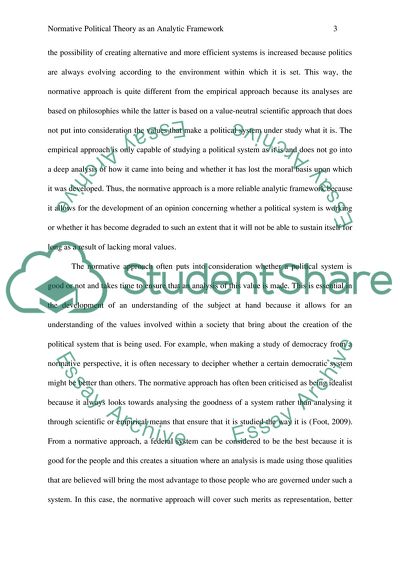Cite this document
(Normative Political Theory as an Analytic Framework Essay Example | Topics and Well Written Essays - 2000 words, n.d.)
Normative Political Theory as an Analytic Framework Essay Example | Topics and Well Written Essays - 2000 words. https://studentshare.org/politics/1858022-how-effective-is-normative-political-theory-as-an-analytic-framework-provide-an-example
Normative Political Theory as an Analytic Framework Essay Example | Topics and Well Written Essays - 2000 words. https://studentshare.org/politics/1858022-how-effective-is-normative-political-theory-as-an-analytic-framework-provide-an-example
(Normative Political Theory As an Analytic Framework Essay Example | Topics and Well Written Essays - 2000 Words)
Normative Political Theory As an Analytic Framework Essay Example | Topics and Well Written Essays - 2000 Words. https://studentshare.org/politics/1858022-how-effective-is-normative-political-theory-as-an-analytic-framework-provide-an-example.
Normative Political Theory As an Analytic Framework Essay Example | Topics and Well Written Essays - 2000 Words. https://studentshare.org/politics/1858022-how-effective-is-normative-political-theory-as-an-analytic-framework-provide-an-example.
“Normative Political Theory As an Analytic Framework Essay Example | Topics and Well Written Essays - 2000 Words”. https://studentshare.org/politics/1858022-how-effective-is-normative-political-theory-as-an-analytic-framework-provide-an-example.


